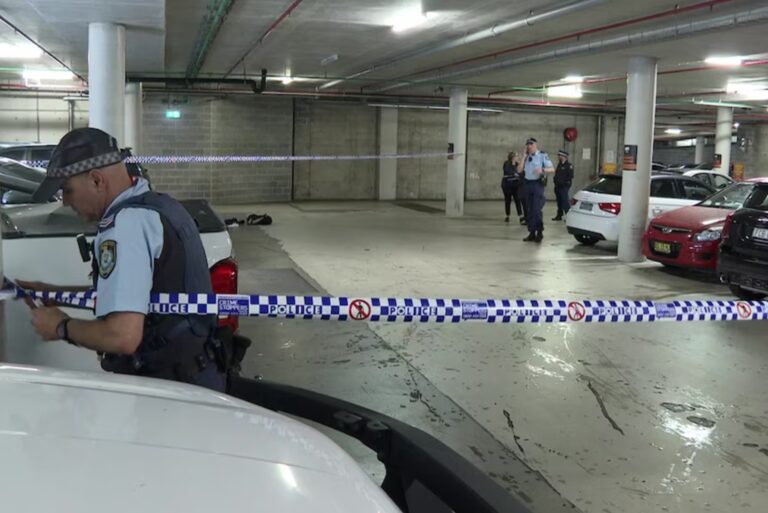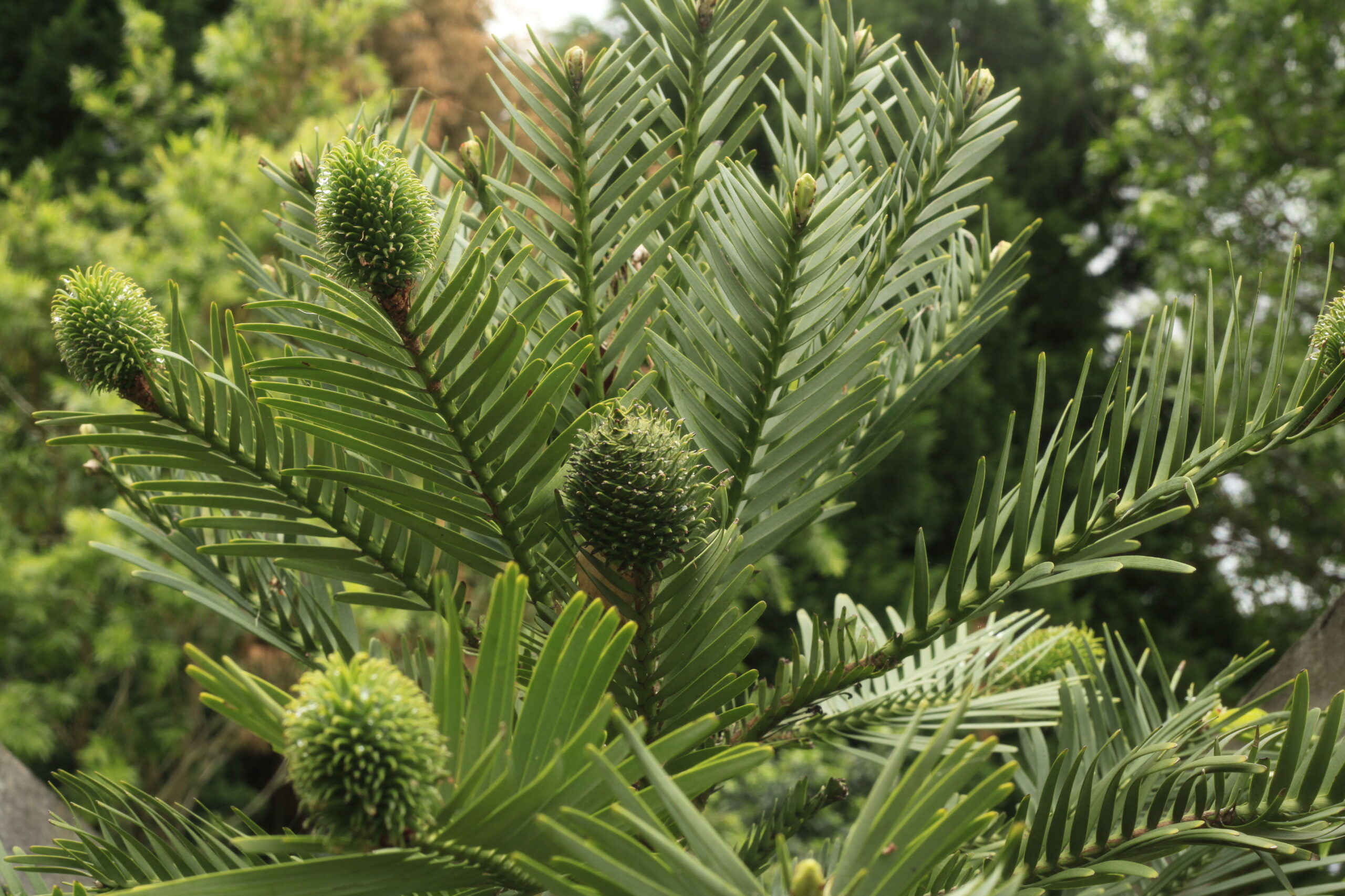Opinion by DANIELA OSIANDER
Do you like dinosaurs? Many kids go through a period of dinosaur obsession. Interestingly, studies show that these kids tend to be smarter than those who don’t. Don’t jump to conclusions, but it turns out the NSW Government doesn’t seem to care much about dinosaurs! At least not when it comes to their actual favourite obsession: coal.
Amazingly, we still have living dinosaurs in NSW: our world-famous dinosaur tree, the Wollemi Pine. A species existing millions of years before the first humans appeared on this planet, it was celebrated as one of the greatest botanical discoveries of our time when live trees were stumbled upon by chance in 1994 – right in Sydney’s backyard, the Blue Mountains. Our very own Jurassic Park.
There was a joint sigh of relief when most of the only known wild remnants of these amazingly rare trees, some of them over 1000 years old, were saved from the recent Gospers Mountain mega-fire through the heroic efforts of remote area firefighters. Shortly after, Wollemi became the first site to be declared an ‘asset of intergenerational significance’ by the government.
How times have changed!
Recently that same government proposed eight new areas for coal exploration, four of them bordering Wollemi National Park, a UNESCO World Heritage area. If released, mining companies can apply for licenses to start looking for coal in diverse forests that are home to endangered species like the Regent Honeyeater, Glossy Black-Cockatoo and Spotted-tailed Quoll. For years, conservationists have wanted those areas with their unique sandstone pagodas added to the World Heritage protection area. Now they are at risk of becoming coal mines instead.
But this is not the only problem. In 2017, researchers from Western Sydney University raised an urgent alarm that runoff from another coal mine near Lithgow, operated by Centennial Coal, had disastrous effects on the area. Centennial Coal had – legally – discharged mine waste into the Wollangambe River for years. 22 kilometres downstream within Wollemi National Park, the researchers found salt levels ten times higher than normal and high levels of metals like nickel and zinc, up 9,300 per cent in some cases. Insects in the area had declined by 90 per cent. The scientists described parts of the Wollangambe River as an “ecological desert”.
Just one of the new proposed coal exploration areas, Ganguddy-Kelgoola, is a catchment for Wollemi Creek, the Cudgegong River, Widden Brook, Coricudgy and Blackwater Creeks, which all flow into the Wollemi National Park.
The same Centennial Coal, owned by Thailand-based Banpu group, recently downgraded its nearby Angus Place Mine Extension Project – after intense protests from environmentalists – from extracting about 135 million tonnes of fossil fuel until 2053 to just 2 million tonnes of coal per year for up to eight years, and changed extraction to the bord and pillar method. This will save hundreds of hectares of endangered and nationally significant wetlands that would have been undermined, drained and killed by the originally proposed longwall mining.
All Eyes on Glasgow
But why do we need to rely on researchers’ chance findings and pressure from environmentalists? Should it not be the NSW Government’s job to act environmentally responsible in the first place? Why release new coal exploration licenses at all, let alone next to one of the most precious, pristine and protected areas of our nation? One of worldwide significance and with natural assets so fragile and precious that their exact location is kept secret?
In less than two weeks, the world’s political leaders will meet in Glasgow at the UN’s COP 26, our own Prime Minister finally included, to try and muster the necessary leadership and joint actions required to solve the biggest crisis humanity has faced. Climate experts agree that global emissions must sharply plummet this very decade to avoid catastrophic climate impacts. After years of procrastinating, net-zero by 2050 is not enough anymore, a commitment and clear plan to at least halving our current emissions by 2030 are now required to keep below the point when impacts of climate change will tip from very bad to terrifying. The latest UN Report released days ago urgently demands that global coal, oil and gas production must start declining immediately and steeply. It specifically singles out Australia for its continued funding of fossil fuels and says it is “imperative that fossil fuel-producing nations recognise their role and responsibility in closing the production gap and steering us towards a safe climate future.”
Releasing new coal exploration licenses now is wrong. It is also wrong that federal Environment Minister Sussan Ley approved four new mega coal projects in NSW last month alone, despite a Federal Court ruling that she has a duty of care to protect young people from the climate crisis.
Andrew ‘Twiggy’ Forrest, a famous mining magnate himself, brought it to the point in his recent Boyer Lecture ‘Confessions of a Carbon Emitter’: “There’s enough pollution-free, renewable energy out there to power humanity for the entire Anthropocene. The Anthropocene is the age of humans. But unlike other geological eras, the markers of our age won’t be Tyrannosaurus teeth or asteroid craters, they’ll be giant landfills of single-swig, plastic water bottles – fossils the moment they were made. We have no idea how long the Anthropocene will last. But if we don’t stop warming our planet – it will be geological history’s shortest era.”
Let’s stop these coal mines in our own weekend playground before they even begin. Several environmental groups, such as The Wilderness Society or the Rylstone Region Coal Free Community, have petitions you can sign. Even better, call or write to your state MP and the responsible ministers, Rob Stokes, Paul Toole and Matt Kean.
Maybe one day, in a rocking chair, we can tell our grandchildren how we once helped save the world, watching them play with their dinosaur toys.


